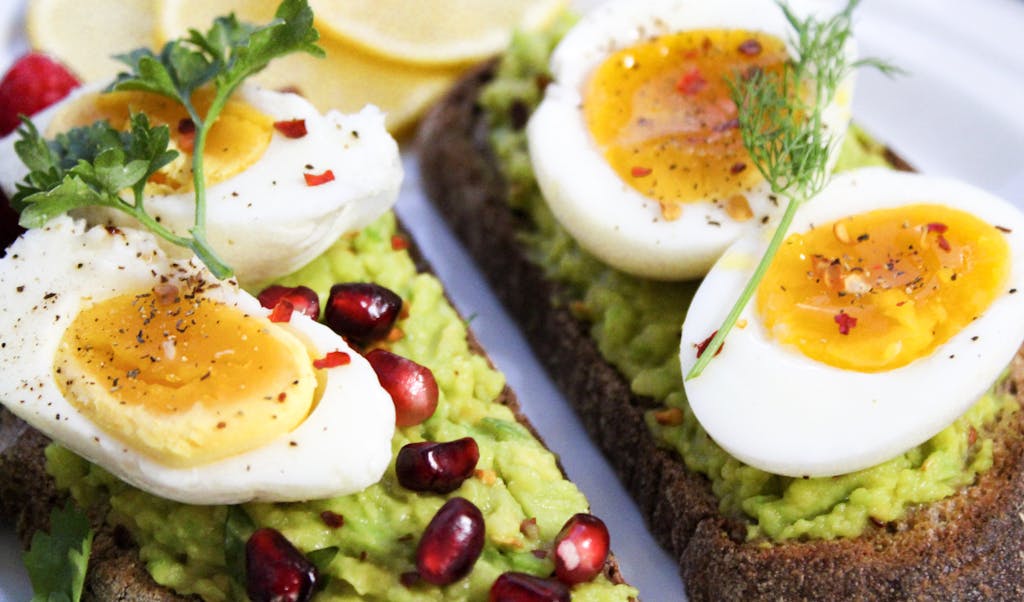Brain Foods: What to Eat for Focus, Energy, and Long-Term Mental Health

We spend a lot of time thinking about what to eat for our bodies—whether it’s to build strength, lose weight, or improve digestion. But what about eating for your brain?
Your brain is incredibly active, using around 20% of your body’s energy even at rest. And just like your muscles, it responds to how you fuel it. The right nutrients can boost focus, improve memory, regulate mood, and even help protect against cognitive decline over time.
Let’s walk through the best foods for brain health, how they work, and easy ways to get them on your plate—without overthinking it.
Why Your Brain Needs the Right Fuel
Your brain doesn’t just want calories. It wants nutrients. And when it doesn’t get what it needs, you feel it.
- Low energy or brain fog after meals?
- Difficulty concentrating?
- Mood swings or anxiety that seems food-related?
These can all be tied to what (and when) you’re eating. The goal isn’t perfection—it’s giving your brain steady, nourishing support so it can function at its best.
The best brain foods tend to fall into a few key categories:
- Healthy fats (especially omega-3s)
- Antioxidant-rich fruits and vegetables
- Slow-digesting, fiber-rich carbohydrates
- Hydrating and anti-inflammatory ingredients
Let’s break those down into real foods you can add to your day.
1. Fatty Fish
Why it helps: Fatty fish like salmon, sardines, trout, and mackerel are packed with omega-3 fatty acids—specifically EPA and DHA. These are essential fats that help build brain cell membranes, reduce inflammation, and support neurotransmitter function.
The science: Studies show that people who consume more omega-3s have improved memory, cognitive function, and mood regulation. Low omega-3 intake has even been linked to increased risk of depression and age-related cognitive decline.
Easy ways to eat it:
- Grilled salmon with roasted veggies
- Canned sardines on whole grain toast
- Tuna salad with avocado and leafy greens
If you don’t eat fish regularly, consider a high-quality fish oil or algae-based omega-3 supplement.
2. Blueberries
Why it helps: Blueberries are rich in antioxidants, particularly flavonoids, which help reduce oxidative stress and inflammation in the brain—both of which are linked to aging and cognitive decline.
The science: Research suggests that regular blueberry consumption may improve memory and delay brain aging. One study found that older adults who ate blueberries daily performed better on memory tests than those who didn’t.
Easy ways to eat it:
- Tossed into oatmeal or yogurt
- Blended in a smoothie with spinach and almond butter
- Frozen as a sweet snack
Bonus: Other berries like strawberries, blackberries, and raspberries are also great choices.
3. Eggs
Why it helps: Eggs are a powerful source of choline, a nutrient that plays a key role in creating acetylcholine—a neurotransmitter involved in memory and learning.
The science: Choline has been shown to support cognitive development and may help protect against age-related memory decline. Eggs also provide B vitamins that help regulate mood and brain energy.
Easy ways to eat it:
- Scrambled with spinach and tomatoes
- Hard-boiled as a snack or chopped into salads
- Fried and served over grain bowls or sweet potatoes
Don’t fear the yolk—it’s where most of the brain-boosting nutrients live.
4. Leafy Greens
Why it helps: Kale, spinach, arugula, and collard greens are loaded with vitamins A, C, E, and K, plus folate, fiber, and antioxidants—all of which are linked to brain health and slower cognitive decline.
The science: A study from Neurology found that people who ate leafy greens daily had slower cognitive decline compared to those who rarely ate them—even when other lifestyle factors were controlled.
Easy ways to eat it:
- Mixed into smoothies
- Sautéed with olive oil and garlic
- Chopped into omelets, wraps, or grain bowls
Aim for at least one serving per day—fresh or cooked both count.
5. Walnuts
Why it helps: Walnuts are rich in alpha-linolenic acid (ALA), a plant-based omega-3, and full of antioxidants that help protect brain cells from damage.
The science: Regular walnut consumption is associated with better memory and cognitive performance. They’ve also been linked to improved mood in people with mild depression.
Easy ways to eat it:
- Sprinkled over yogurt, oatmeal, or salads
- Blended into smoothies or nut butter
- Eaten raw as an on-the-go snack
Just a handful a day (about ¼ cup) is enough to get the brain benefits.
6. Dark Chocolate (Yes, Really)
Why it helps: Quality dark chocolate (70% cacao or higher) is rich in flavonoids, which increase blood flow to the brain and may support memory, focus, and mood.
The science: Studies have found that dark chocolate can improve brain function, particularly in tasks requiring memory and reaction time. It also supports the release of endorphins and serotonin.
Easy ways to eat it:
- A square or two after lunch
- Melted and drizzled over fruit
- Added to overnight oats or homemade trail mix
Just be mindful of sugar content and portion size—this is about brain health, not candy binges.
7. Avocados
Why it helps: Avocados are loaded with monounsaturated fats, which support healthy blood flow to the brain. They also contain potassium, folate, and fiber—nutrients tied to cognitive performance and mood regulation.
The science: One study showed that eating one avocado per day improved working memory and attention in healthy adults, likely due to increased lutein levels in the brain.
Easy ways to eat it:
- Mashed on whole grain toast
- Blended into smoothies for creaminess
- Sliced into salads or tacos
They’re also incredibly filling, making them a smart choice for sustained energy.
Bonus: Hydration and Brain Health
Don’t underestimate the impact of hydration on focus and mental clarity. Even mild dehydration can cause brain fog, poor concentration, and headaches.
- Aim for half your body weight in ounces of water per day (more if you’re active or in a hot climate).
- Herbal teas, fruit-infused water, and high-water foods like cucumbers and oranges also help.
If your brain feels sluggish, a glass of water might be more helpful than another cup of coffee.
What to Limit for Brain Health
Just like certain foods support your brain, others can work against it. These are worth reducing or being mindful of:
- Highly processed foods with added sugars and artificial ingredients
- Refined carbs that spike blood sugar (like white bread or sweetened cereals)
- Excess alcohol, which impairs brain function and memory over time
- Trans fats, which have been linked to increased risk of cognitive decline
No need to be perfect—just aim for more whole, nutrient-dense foods than not.
A Sample “Brain-Boosting” Day of Eating
Here’s what a day could look like when you’re focused on fueling your mind:
Breakfast:
Oatmeal topped with blueberries, walnuts, and a soft-boiled egg on the side
Lunch:
Grain bowl with quinoa, leafy greens, roasted salmon, avocado, and olive oil dressing
Snack:
Greek yogurt with dark chocolate chips and a sprinkle of chia seeds
Dinner:
Lentil and sweet potato stew with a side of sautéed kale
Evening treat:
Chamomile tea and a square of dark chocolate
No tracking required—just simple meals made from real ingredients that support how you want to feel.
Final Thoughts: Eat for the Life You Want to Live
The foods you eat shape more than your body—they shape your mind, your mood, and your daily experience. When you fuel your brain with intention, everything from focus to emotional resilience improves.
You don’t need to follow a perfect diet or buy expensive supplements. You just need to start including more of the foods that support your brain—and paying attention to how they make you feel.
Because at the end of the day, wellness isn’t just about longevity. It’s about quality of life—and your brain is at the center of all of it.






